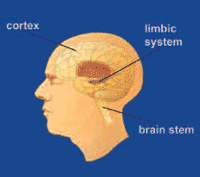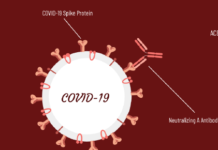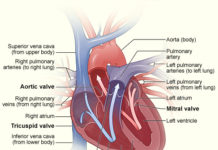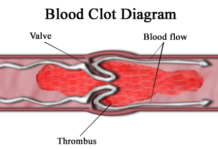“You know he’s a schizophrenic?” “What? You mean like in that movie?” I asked. “Yes … and your grandmother was afraid of him. She believes people like that are possessed by the devil.”
My older cousin is a 38-year-old schizophrenic. According to Medicinenet.com, approximately 2.2 million American adults have schizophrenia.

The Mayo Clinic staff states that schizophrenia is “a group of severe brain disorders in which people interpret reality abnormally”. People who are schizophrenics hallucinate or see things only in their minds. A good example would be a bug crawling under their skin when really they’re just itching. Luckily, this disease is treatable, although not curable.
According to WebMD.com there are different types of schizophrenia. People with paranoid schizophrenia are preoccupied with false beliefs (delusions) about being persecuted or being punished by someone. People with catatonic schizophrenia are generally immobile and unresponsive to the world around them. For example, you may feel like you’re in a coma-like state—unable to speak, move, or respond—or you may talk and behave in a bizarre, hyperactive way. Without treatment, catatonic episodes may last for a month or longer. People with disorganized schizophrenia are confused and incoherent, and have jumbled speech
The National Alliance for Research on Schizophrenia and Depression, a private, nonprofit public charity that supports research on brain and behavioral disorders, lists the general symptoms of schizophrenia as hallucinations, delusions, paranoia, and disordered thinking. Those are the “positive” symptoms of this disease. The “negative” symptoms include not being able to speak, show emotion, initiate plans or finding joy in everyday life. And the cognitive symptoms are issues with paying attention and memory problems.
A person with schizophrenia may lack activity in certain parts of the brain. Brainexplorer.org, a website produced by the Danish Lundbeck Institute, which conducts research to find new drugs for treatment of central nervous system disorders, states that the areas of the brain affected by schizophrenia are the forebrain (which controls the ability to eat, sleep, and display emotions), the hindbrain (which controls the posture, sleep patterns, breathing, and blood circulation), and the limbic system (which controls mobile activities like walking and also emotional expression). .
“How did Mark get it?” I asked my mother. “He was at a club and someone slipped something in his drink, probably to see him fail since he was doing so well with his life. He was in college and very smart, but some people just hate to see others succeed,” she replied. That’s sad though.” I said, feeling sorry for Mark. Me too, Brittney,” she said with the same level of emotion.
The National Institute of Mental Health states that the causes of schizophrenia include genes, which doctors know can be passed down from family members. Another cause is the environment, such as being exposed to viruses or malnutrition before birth and during birth. The last cause is different brain chemistry and structure affecting the neurotransmitters in our brains.
Everyday Health Inc, a partner with the Mayo Clinic , states that there is increasing evidence that unadvised drug use, mainly marijuana, might be one of the environmental causes. A recent review of studies that explored schizophrenia risk for marijuana users found that people who used this drug by the age of 18 years had more of a risk to develop schizophrenia than people who don’t. Other studies say that people who’ve used marijuana more than 50 times were 6 times more likely to get a schizophrenia diagnosis.
Studies show that alcohol is the drug most often used by people with schizophrenia. Though alcohol can cause symptoms, there is no evidence to say alcohol use causes schizophrenia. Ken Duckworth, MD, an associate professor at Harvard Medical School in Boston, says that proving the relationship between schizophrenia and illegal drugs use is tough. In fact, to prove that marijuana use causes schizophrenia, a researcher would have to give marijuana to someone at risk of schizophrenia. This is not illegal, but it is unethical to knowingly expose someone to a drug.
Schizophrenia can be prevented by avoiding the use of drugs. Delaying drug use until adulthood might also decrease a person’s chances of developing schizophrenia. Duckworth says that not everyone with schizophrenia has used illegal drugs.
The medication for schizophrenics is called antipsychotics. It helps by reducing the psychotic symptoms of this disease. The side effects are drowsiness, restlessness, muscle spasms, tremor, dry mouth or blurring of vision. This can be prevented by lowering the dosage, according to Mayo Clinic.
Overall, with the right treatment, schizophrenics like my cousin can live happy normal lives like everyone else.

This work is licensed under a Creative Commons Attribution-NonCommercial-NoDerivs 3.0 Unported License














:smile This was a very interesting article it grabbed my attention from start to finish.
:ak This was interesting.
this is a good article but it dont show any pros on marijuana only the cons
it was a good article